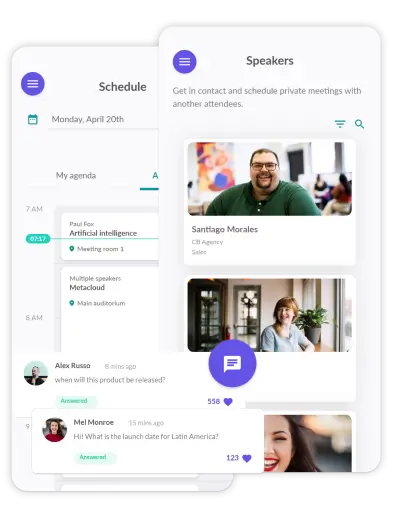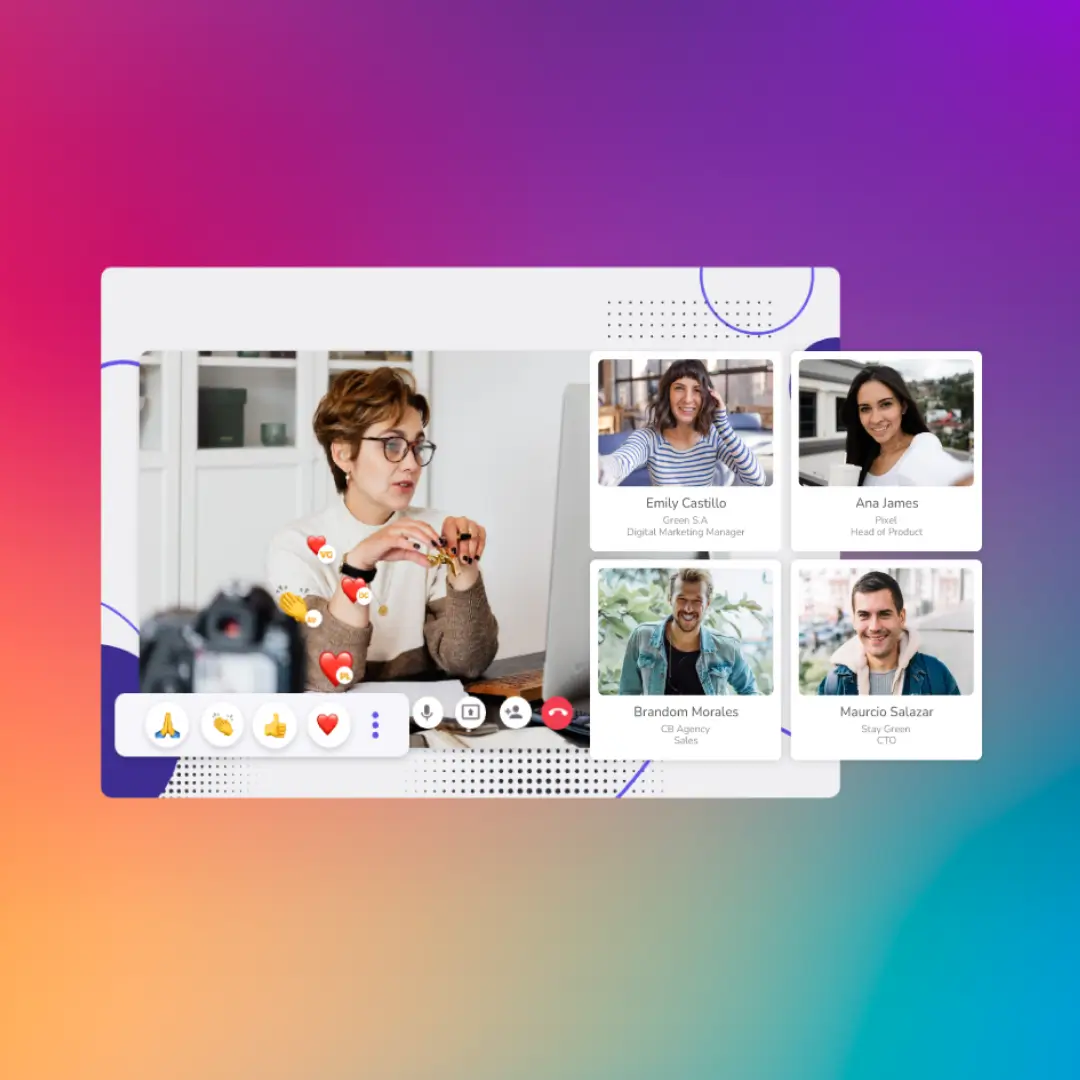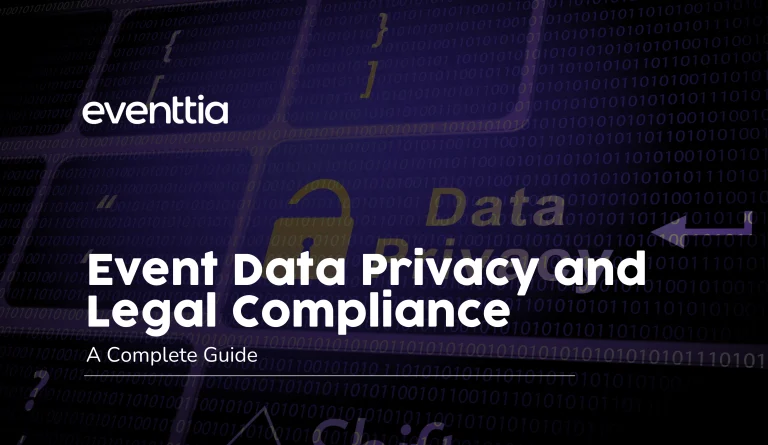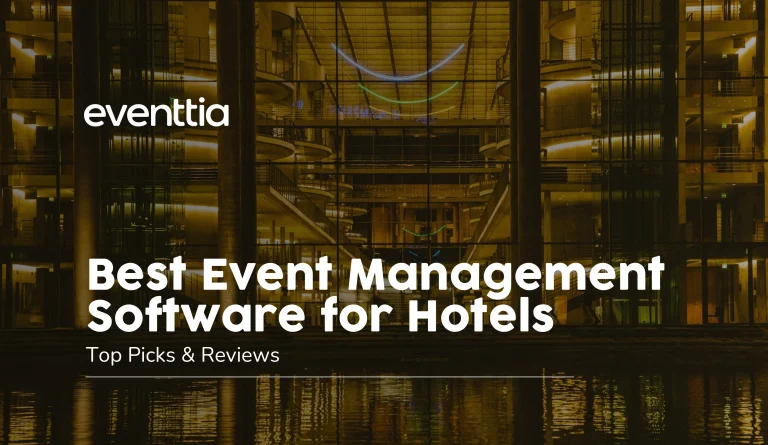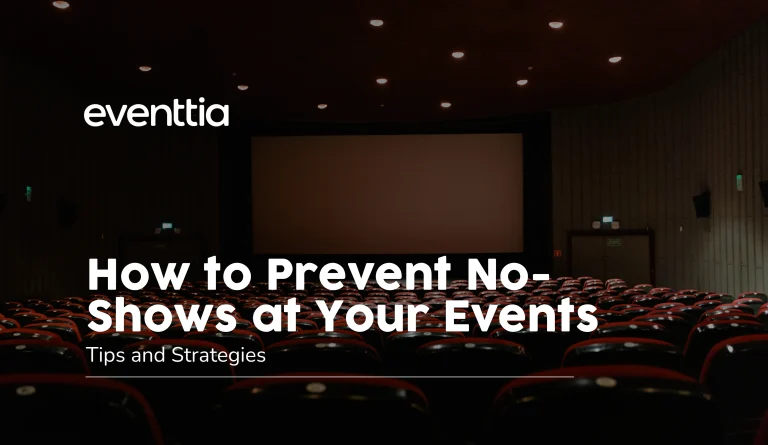Promoting an event takes a lot of work. But if you don’t do it, nobody will know about your event. And when nobody knows, don’t be surprised to learn you have zero attendees.
If you want your event to succeed, you need to put in the work. While you’re at it, why not use referral marketing to drum up attendees?
Yes — word-of-mouth marketing, or referrals, is an effective way of getting more attendees to your event.
In this article, we cover powerful referral marketing strategies that you can use to reduce the heavy lifting and ensure more people come to your events.
Give Discounted Prices to Groups
Distributing discounts is a marketing strategy. Regardless of what product or service you’re selling, professional marketers have used it for years as their secret weapon.
Its many advantages include generating more customers and increasing sales. It also gives people a positive impression of your business and influences them to prefer your products and services over your competitors.
If you offer discounted prices to groups as a reward for attending your event, these people will attend your event. It also encourages solo attendees to look for other people who could join them in the event, potentially bringing in a bigger crowd.
Here are tips on how to use discounted pricing:
- Set goals – Prioritize the goal of attracting event attendees. Next, focus on other goals promoting your brand, products, services, and business.
- Learn the types of discounted pricing – Familiarize yourself with the different types of discounted pricing, like prepayment discounts, bundles, and free shipping. Then, select the type that pulls in groups. For example, bundles or “buy one, take one” offers are attractive to groups.
- Ensure no loss of profits – Strategize and guarantee you won’t lose income. While you want to entice people to your event, you don’t need to jeopardize the profitability of your business in the process.
Mobilize Audience via Competitions
Competitions or contests allow people to win event tickets without paying. To do this, they create user-generated content (UGC) or content based on the contest rules.
Through UGC, you can display the incredible works of people. It’s also a referral marketing strategy that helps you promote your brand and your event simultaneously.
This is how Starbucks, the largest chain of coffeehouses in the world, uses UGC. Its #RedCupContest, held every December, entices people to submit awesome pictures of their coffee (in a red Starbucks cup, of course) for a chance to win a gift card and $500.
Here are the best practices for running UGC contests:
- Create a branded hashtag – Make your event discoverable and organize content entries. Using a branded — unique, recognizable, and easy-to-remember — hashtag can help.
- Emphasize a cause – Target a bigger goal than your event. People like taking part in activities with philanthropic causes.
- Match holiday themes – Ride with the spirit of the holidays. For example, host a Christmas-themed UGC contest when Christmas is around the corner.
Hire Influential Speakers
Determine a person’s online following, credentials, and public likability. If they have influence, hire them as a guest speaker. Then, create promotional materials that feature their name. The more popular a speaker is, the better and the more hype they can create for your event.
Just remember to hire relevant people in your niche. If not, it could backfire and make your event seem laughable. For instance, if you’re running a marketing-themed event, conference, or summit, you can work with marketing professionals as speakers and event promoters.
For example, Jay Baer, a renowned expert in digital marketing and customer experience, was a speaker at one of IBM’s events. As a result, the event accommodated audiences who wanted to hear what the guest speaker had to say.
Here are tips on how to book these speakers:
- Visit speaker websites – Check websites like SpeakerHub and the National Speaker Association. These websites specialize in featuring well-vetted and superb influential speakers. Also, check search engines using keyphrases like “top 10 speakers in [niche]” and “5 best [niche] speakers in [location]”.
- Use social listening – Monitor social media users in your niche and determine the speakers they want to see at an event. If these people cite the names of speakers, go to YouTube to see a particular speaker in action. You can also search Reddit and Quora for a more opinionated discussion.
- Ask audiences – Communicate with audiences to ask who they want as speakers. You can ask them about a subject they want to discuss. Also, consider creating polls and surveys that let them vote from a list of influential speakers.
Provide Greater Value to Early-Bird Ticket Buyers
A way of pushing more ticket sales is to give exclusive gifts to people who purchase tickets early. Registering early for an event isn’t a simple decision, and you should acknowledge and incentivize people who do this. You can present information about this exclusive giveaway on the landing page of your chosen virtual event platform.
Rewarding early birds is a marketing strategy that creates demand throughout the event registration process. Not only does it build buzz for an event, but it also helps event planners organize events into stages. Monitoring the success of registration totals also helps them plan better events in the future.
An example of an event that gave praiseworthy privileges to early birds is the Traffic & Conversion Summit, a widely celebrated digital marketing event in North America. For starters, it provided discounted ticket prices to early birds. Its regular ticket cost was about $2,500, but they discounted this price by over 50% and charged $1,200 for early birds.
Here are ways to offer higher value to early birds:
- Give access to a VIP lounge – Inform early birds they have the opportunity to get premium products and services from your business. The advocates of your products and services, brand, and business will find this perk highly attractive.
- Organize “Meet & Greet” sessions – Assemble an exclusive panel of speakers and influential people. Then, encourage people to register early for your event to shake hands with these people. Meet & Greet sessions are a way for event attendees to expand their network.
- Incentivize – Design exclusive gift bags and swag. Distributing these to early birds encourages others to follow their lead — and be early birds. This way, they can have exclusive items, too.
- Make them feel at home – Include exclusive accommodation packages to a nearby hotel to encourage early birds to take you up on your offer. You can also set up a private storage unit for the attendees to store their items securely while the event takes place. Small actions can go a long way.
Get Positive Reviews from Attendees about Your Previous Events

Leverage previous events and ask previous attendees what they think of them. Use their answers as a basis to avoid planning boring events. You can also turn to their answers to make your events more meaningful from this point forward. Then, share the positive words on social media and in emails to generate more interest for your upcoming event.
This strategy makes use of a psychological phenomenon called social proof. It comes in different types. The most common types are expert social proof, celebrity social proof, and “wisdom of the crowds” social proof. Regardless of the type, each is effective in evoking positive emotions.
By using social proof, you’re giving a random person (someone not related to your company) a platform to say good things about your events — and as an extension, your brand. Because it’s not from you, others will feel that the testimonial is more powerful and authentic.
Here are ways you can collect social proof:
- Collaborate with industry leaders – Benefit from the wide reach of industry leaders — and help them benefit from your reach, too. Invite them as guest speakers at your event or have thorough Q&A-style discussions. You can also return the favor by offering yourself as a guest speaker for their next events.
- Show appreciation – Acknowledge mentions of your brand name every time it comes up. Why not take it to the next level and respond to the mention? Not only does it increase exposure and engagement, but it also enhances your online reputation.
- Verify accounts – Comply with the requirements for a blue checkmark. It applies to many social networks like Twitter and Instagram. It significantly boosts credibility and garners respect. Nowadays, interacting with a verified account discourages scams, illegitimate concepts, and other fraudulent acts.
Send Outreach Emails to a Wide Audience

Aside from sending emails to your subscribers, reach out to non-subscribers. For all you know, more people want to attend your event. The only problem? They don’t know anything about it.
To set this process in motion, discover the best outreach opportunities using tools like BuzzSumo and Ninja Outreach. Focus on opportunities relevant to your niche. For example, use a filter to spot business-related outreach opportunities if your event is about business. Then, discover and focus on a target audience.
Once you know your target audience, find and verify their business email. Avoid the common mistake of performing outreach using a general contact form on a website. The best approach is to use Findymail, Norbert, RocketReach, UpLead, or any email finder to look up the email addresses of prospects.
Here are more tips on how to send outreach emails:
- Craft a straightforward subject line – Grab attention using your subject lines. Be concrete and direct. A good rule of thumb is to write informative and engaging subject lines — as if you’re the recipient.
- Compose outstanding emails – Refer to a template. The idea is to introduce yourself, present your offer, and share the benefits. Then, proofread your message and ensure everything is grammatically correct.
- Strategize timing – Avoid sending emails on weekends, Monday mornings, and Friday afternoons. Better yet, determine the recipient’s schedule to know if they’re busy. It’s only fair for them not to be responsive to you if you didn’t provide enough time to consider your offer.
Launch an Affiliate Program
Get help from other people or affiliates to promote your event. In exchange, affiliates will receive a commission for every successful ticket sale. Inform them that the more people they encourage to attend your event, the more rewards they get.
The trick here is to offer enticing commissions. Usually, this commission is monetary. But, if you want to stand out from typical affiliate programs, offer irresistible deals on top of monetary commissions. For example, you can offer special gift cards to complement the monetary commissions.
A brilliant approach is to create a custom affiliate campaign specifically for your event. One platform you can use is Kajabi. To start creating custom affiliate campaigns, click Kajabi Partners on your dashboard. Then hit Browse Campaigns under the Campaigns section. Finally, choose Create a Custom Campaign Link. From this point on, all that’s left is to share the affiliate link with others.
Here are the best practices on how to proceed with an affiliate marketing strategy for your events:
- Ask attendees – Mention you have an affiliate program every time someone buys tickets for your event. Because attendees want to take part in your event, the odds are that they want to take part in your affiliate program, too.
- Use paid ads – Expose the presence of your event to a target audience and as many people as possible. Use Google Ads and strive to get on the first page of the search engines.
- Create and optimize an affiliate page – Design a web page to promote your affiliate program. Then, apply SEO techniques to enhance visibility, make it more readable, and increase click-throughs. Finalize the process using A/B split tests.
Conclusion
Don’t fret if only a few people have registered for your upcoming event. Implement powerful referral marketing strategies, give things time to work, and you can raise that number.
After all, referral marketing is a high-value marketing tactic — not only for your event but as a general marketing tactic. It can reel in valuable warm leads with almost zero financial investment.
And if there’s one thing you can teach your sales team, why not teach them to dedicate their efforts to referral marketing? If you play your cards well, you could save lots of time and optimize the resources of your business.
Discover how Eventtia helps world-leading brands digitize and scale their events
Learn more
Share

